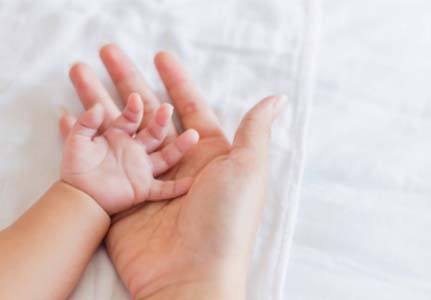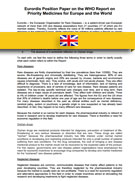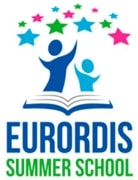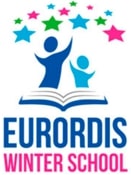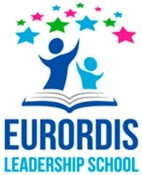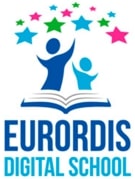International policy
Why is international policy a priority for persons living with a rare disease?
There are over 300 million persons living with a rare disease around the world, plus their families and carers who are also directly affected.
International policy and collaboration are therefore crucial to ensure their human rights are upheld everywhere, including their access to medicines and the care they need every day.
The challenges of living with a rare disease know no borders – a long road to diagnosis, a lack of understanding of the disease, limited research, obstructed access to medicines and care, and stigma and discrimination in society. Disease expertise is often scattered across borders and not available to a person in their own country. Another person living with the same disease may be located across an ocean or multiple borders. Persons living with a rare disease in low and middle income countries often face even more obstacles or a complete lack of even the most basic care or treatment options.
International networks can facilitate cross-border sharing of expertise and the advancement of much-needed research. International policy is vital to put rare diseases at the top of policy makers’ agenda.
About international policy
The United Nations (UN) and the World Health Organization (WHO) coordinate international human rights and health policy. The international rare disease community works to highlight and prioritise rare diseases within these forums. By doing so, there is a trickle-down effect – by making rare diseases an international public health and human rights priority, it becomes one at the national level in countries around the world.
Our work
EURORDIS objectives in the area of international policy are:
- Objective one: Make universal health coverage a reality for persons living with a rare disease.
- Objective two: The implementation of the Collaborative Global Network for Rare Diseases.
- Objective three: Ensure the inclusion of persons living with a rare disease in the UN’s agenda 2030 “To leave no one behind”.
EURORDIS engages in international policy through three main bodies:
- Rare Diseases International, first established by EURORDIS and national alliances, which brings together national and regional rare disease patient alliances from around the world as well as international rare disease-specific federations to create the global alliance of persons living with a rare disease and their families.
- The NGO Committee for Rare Diseases, a substantive committee established under the umbrella of the Conference of NGOs in Consultative Relationship with the United Nations co-founded by EURORDIS, aiming to bring awareness of rare diseases within this international organisation.
- The International Rare Diseases Research Consortium (IRDiRC), which is committed to enabling all persons living with a rare disease to receive an accurate diagnosis, care, and available therapy within one year of coming to medical attention.
Since 2018, EURORDIS has official Special Consultative Status with ECOSOC (the UN’s Economic and Social Council).
Advocate
Universal health coverage for all
In February 2019, EURORDIS, with Rare Diseases International (RDI) and the NGO Committee for Rare Diseases, held the first-ever Rare Disease Day Policy Event at the UN headquarters in New York, bringing together patient representatives and numerous national permanent missions to the UN to commit to improving the lives of persons affected by a rare disease and strive for inclusive universal health coverage (UHC).
In September 2019, UN Member States adopted the historical Political Declaration on UHC including a commitment to strengthen efforts to address rare diseases, the first time ever rare diseases have been included within a UN declaration adopted by all 193 Member States. This was the result of ambitious advocacy efforts from the rare disease community, EURORDIS, RDI and the NGO Committee.
At the end of 2019, following a meeting with Dr Tedros, Director-General of the WHO, Rare Diseases International signed a memorandum of understanding (MoU) with the WHO. The MoU aims to address public health needs and issues related to rare diseases and ensure the achievement of UHC that is inclusive of rare diseases.
Collaborative Global Network for Rare Diseases
Through the MoU, RDI and the WHO are working towards a Collaborative Global Network for Rare Diseases (CGN), using a structured approach to group rare diseases by therapeutic areas that encompasses all rare diseases and leaves no one behind. The CGN will connect major academic healthcare organisations (hubs) with multi-disciplinary rare disease specialist services at regional and global levels.
A needs assessment study has been carried out to support the development of a conceptual and methodological framework for the CGN. This framework will promote the identification, assessment and support of centres of expertise that will be connected internationally through the CGN. RDI is also undertaking a comprehensive consultative process with patient advocates in each of the six WHO regions as part of this work.
United Nations Resolution on Rare Diseases
Through the NGO Committee for Rare Diseases, EURORDIS also strives for the adoption of a resolution at the level of the UN General Assembly (UNGA) to holistically address the needs of persons living with a rare disease.
A UNGA resolution would formally make rare diseases a global health priority and be an essential step towards recognition and actions aimed at improving the quality of life of persons living with a rare disease. It would set in motion a wave of policy actions that will ultimately help “leave no one behind”.
Key asks would include the creation of national strategies for rare diseases in UN Member States, the integration of rare diseases in UN agencies and programmes and official reporting by the UN secretariat to monitor progress in implementation.
Other international collaborations
Created by EURORDIS, Takeda, and Microsoft, the Global Commission to End the Diagnostic Odyssey for Children with a Rare Disease has created a roadmap for the rare disease field that focuses on solutions to core barriers preventing timely diagnosis for all rare diseases – with an emphasis on those affecting children. The Global Commission brings together representatives from multiple sectors to provide diverse perspectives on rare disease diagnostics.
Through our membership of the International Rare Diseases Research Consortium (IRDiRC), as part of the Consortium Assembly, the Patient Advocates Constituent Committee and the Therapies Scientific Committee, we contribute to accelerating diagnostics and therapies for rare diseases worldwide, paying particular attention to patient involvement in the development of these treatments.
Partner
At the UN headquarters in New York and the WHO in Geneva, EURORDIS has engaged patient representatives in international advocacy efforts to get rare diseases recognised as a public health priority.
EURORDIS engages volunteers from the patient community to provide feedback on our international advocacy efforts. Several volunteers are based in New York to represent EURORDIS at debates and conferences organised at the UN, to relay key advocacy messages during targeted meetings with Permanent Missions to the UN, and to be involved in activities of the NGO Committee for Rare Diseases.
With the NGO Committee for Rare Diseases and its advocacy actions related to the possible adoption of a UN Resolution on Rare Diseases, patient organisations are also engaged in a common campaign to secure the support of UN Member States.
Empower
Through RDI, a network within which rare disease organisations can exchange experiences, share best-practice and support each other’s actions, EURORDIS helps strengthen national and regional patient groups.
RDI leads campaigns, webinars and develops tools to encourage patient organisations to advocate for rare disease strategies and UHC policies inclusive of rare diseases at the national level.
Publications & Resources
- Rare Diseases International
- NGO Committee for Rare Diseases
- ECOSOC (the UN’s Economic and Social Council)
- UN Political Declaration on universal health coverage (see article 34)
- International Rare Diseases Research Consortium (IRDiRC)
- Global Commission to End the Diagnostic Odyssey for Children with a Rare Disease.
- Would you like to contact your national representatives at the UN? See the blue books listing contacts for national permanent missions in New York and Geneva.

